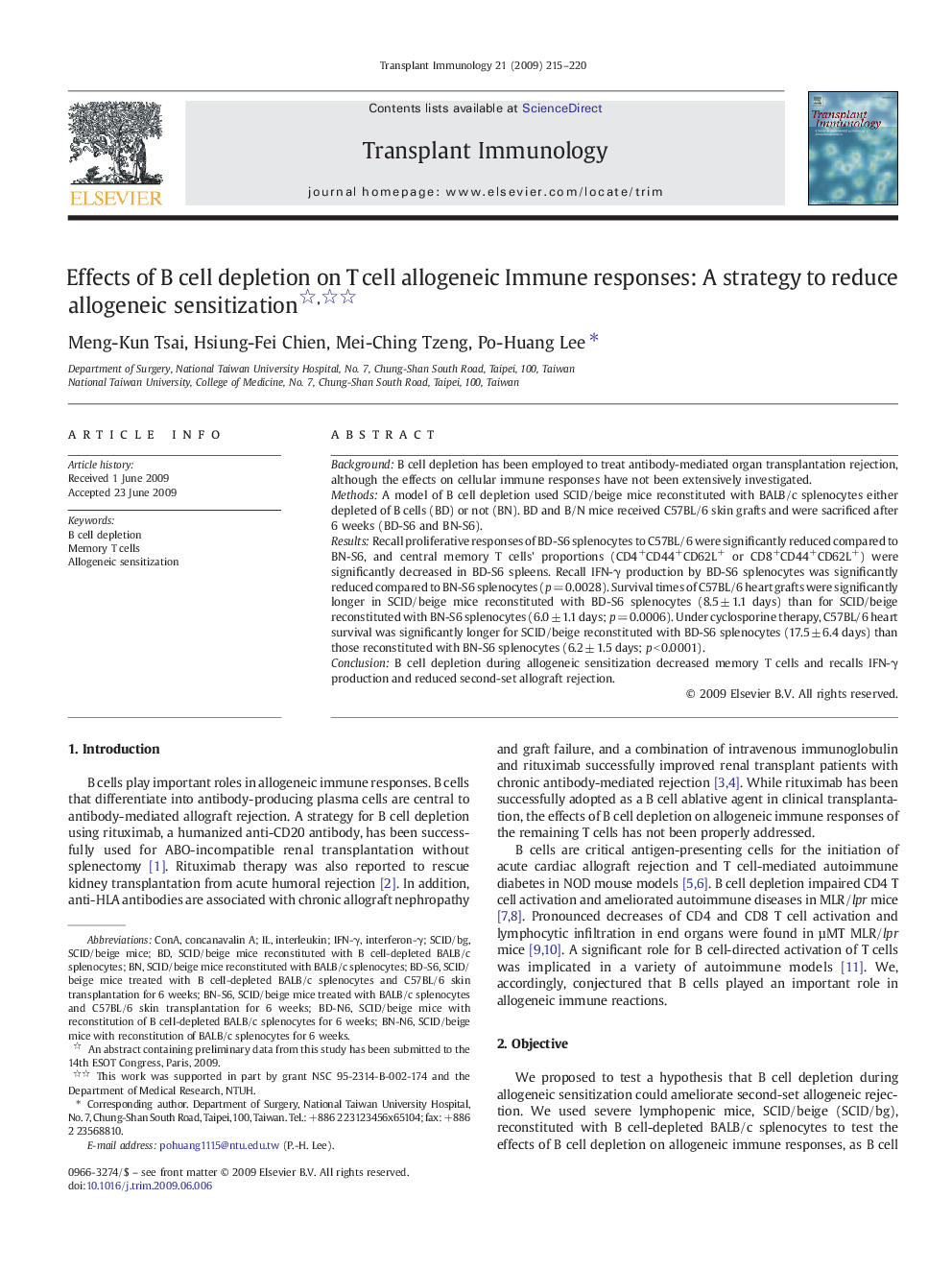| Article ID | Journal | Published Year | Pages | File Type |
|---|---|---|---|---|
| 3392377 | Transplant Immunology | 2009 | 6 Pages |
BackgroundB cell depletion has been employed to treat antibody-mediated organ transplantation rejection, although the effects on cellular immune responses have not been extensively investigated.MethodsA model of B cell depletion used SCID/beige mice reconstituted with BALB/c splenocytes either depleted of B cells (BD) or not (BN). BD and B/N mice received C57BL/6 skin grafts and were sacrificed after 6 weeks (BD-S6 and BN-S6).ResultsRecall proliferative responses of BD-S6 splenocytes to C57BL/6 were significantly reduced compared to BN-S6, and central memory T cells' proportions (CD4+CD44+CD62L+ or CD8+CD44+CD62L+) were significantly decreased in BD-S6 spleens. Recall IFN-γ production by BD-S6 splenocytes was significantly reduced compared to BN-S6 splenocytes (p = 0.0028). Survival times of C57BL/6 heart grafts were significantly longer in SCID/beige mice reconstituted with BD-S6 splenocytes (8.5 ± 1.1 days) than for SCID/beige reconstituted with BN-S6 splenocytes (6.0 ± 1.1 days; p = 0.0006). Under cyclosporine therapy, C57BL/6 heart survival was significantly longer for SCID/beige reconstituted with BD-S6 splenocytes (17.5 ± 6.4 days) than those reconstituted with BN-S6 splenocytes (6.2 ± 1.5 days; p < 0.0001).ConclusionB cell depletion during allogeneic sensitization decreased memory T cells and recalls IFN-γ production and reduced second-set allograft rejection.
